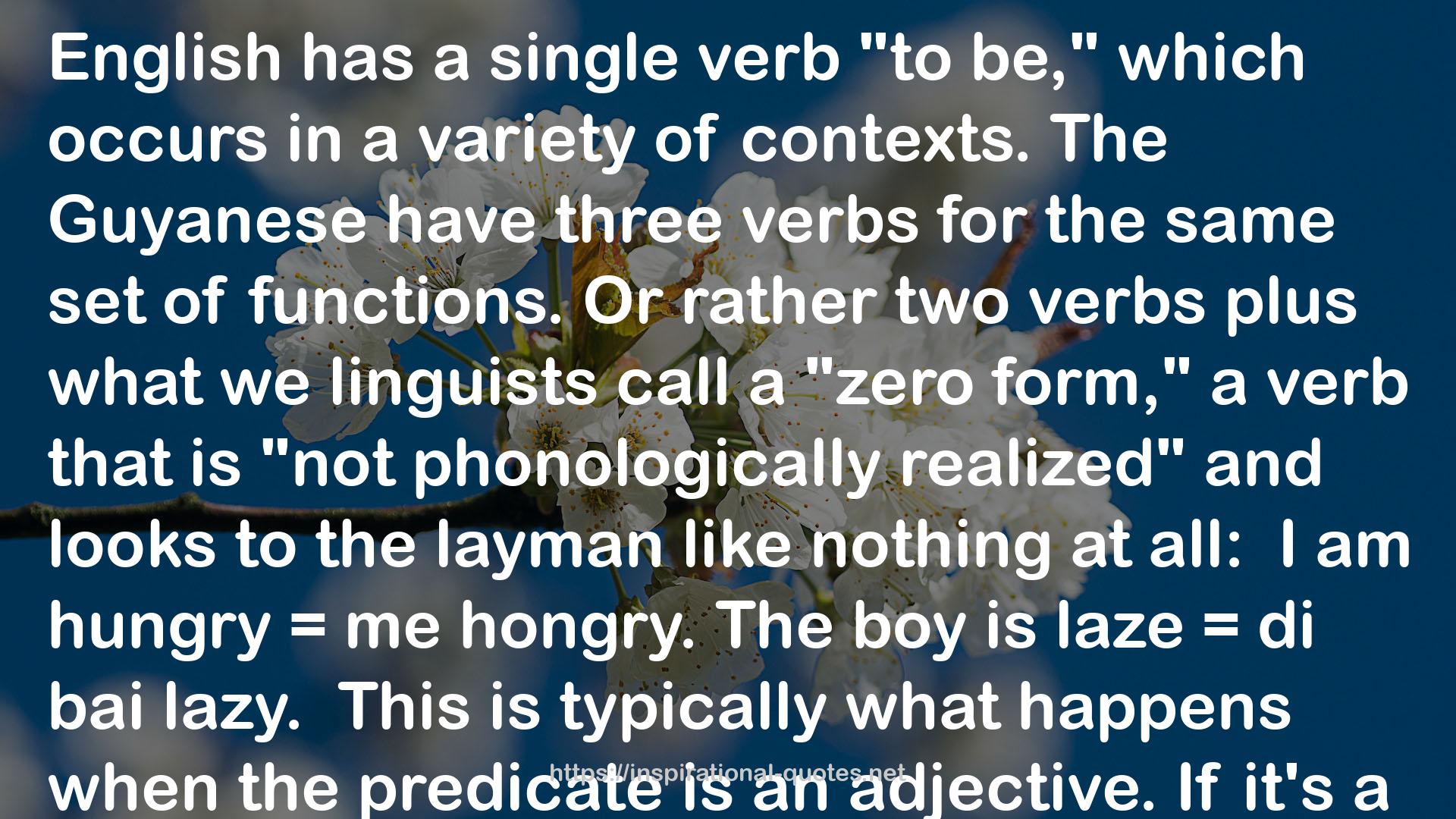" English has a single verb "to be," which occurs in a variety of contexts. The Guyanese have three verbs for the same set of functions. Or rather two verbs plus what we linguists call a "zero form," a verb that is "not phonologically realized" and looks to the layman like nothing at all:
I am hungry = me hongry.
The boy is laze = di bai lazy.
This is typically what happens when the predicate is an adjective. If it's a noun, you get yet another a:
I am captain = me a kyapn.
However, if the predicate is an expression indicating location, de must be used:
I am in Georgetown = me de a Jarjtong.
If there is no predicate (as in Descartes' "I think, therefore I am") then the meaning must be the same as "exist," and again de is used:
God is/exists - Gad de. "
Image for Quotes

I am hungry = me hongry.
The boy is laze = di bai lazy.
This is typically what happens when the predicate is an adjective. If it's a noun, you get yet another a:
I am captain = me a kyapn.
However, if the predicate is an expression indicating location, de must be used:
I am in Georgetown = me de a Jarjtong.
If there is no predicate (as in Descartes' "I think, therefore I am") then the meaning must be the same as "exist," and again de is used:
God is/exists - Gad de." style="width:100%;margin:20px 0;"/>